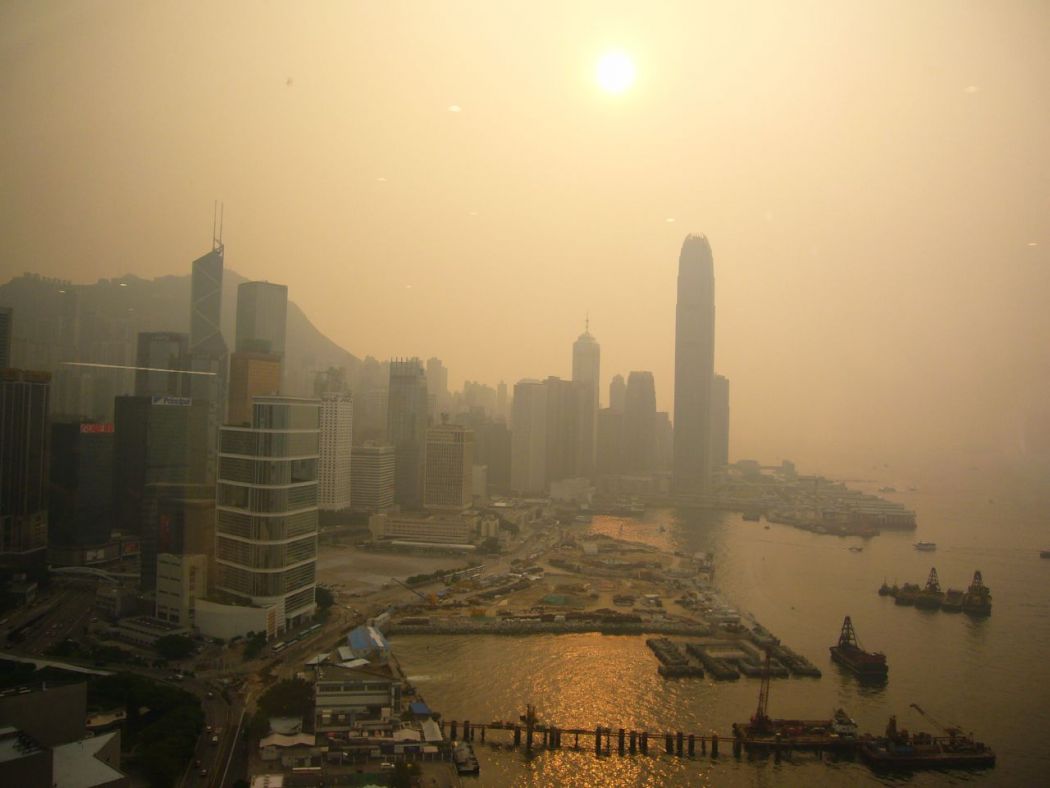Hong Kong has fallen 78 per cent short of the 2030 carbon emissions target set by C40 Cities for high emitting cities, a study by NGO CarbonCare InnoLab has suggested.
Hong Kong is set to reduce its carbon emissions by 3.3 to 3.8 tonnes per capita by 2030, according to the Environment Bureau’s “Climate Change Action Plan 2030+” released last year. But this falls two tonnes short of the target recommended by C40 Cities in accordance with the goals in the Paris Agreement.

C40 Cities is an organisation of 96 major cities worldwide. It coordinates climate change activities based on the 2015 United Nations’ Paris Agreement to cut global greenhouse gas emissions between all nations, apart from Syria and Nicaragua.
CarbonCare InnoLab released its report Paris Watch – Hong Kong Climate Action Report on Tuesday. It examines the city’s current environmental state and future targets against five other major Asian cities from the C40 Cities alliance. They include Singapore, Tokyo, Seoul, Shenzhen and Guangzhou – chosen for their similar size, developmental status or coastal locations.

The NGO said that Hong Kong is trailing behind its counterpart cities in renewable energy, energy efficiency, transitioning to electric mobility, and curbing greenhouse gas emissions.
“The Paris Agreement targets should be seen as an opportunity, not a burden,” Albert Lai, Senior Advisor to CarbonCare InnoLab, said. He added that “doing badly on climate change will certainly mean Hong Kong will do badly at business and in other social aspects: from not being ready for climate-related business disruption, to having a poor international reputation.”
The findings come as representatives from 195 countries gather in Katowice, Poland, for the start of the United Nations’ climate change conference, COP24, on Sunday. Attending parties are set to discuss details of the Paris climate accord, which aims to keep the increase in global average temperature to below two degrees Celcius and to limit the increase to 1.5 degrees Celcius.

“Hong Kong is not on track in terms of reducing overall greenhouse gas emissions to zero by 2050 in line with the recommendation in the latest [Intergovernmental Panel on Climate Change] 1.5 [degrees Celcius] report. There can be no exceptionalism for a city as prosperous as Hong Kong”, said John Sayer, project lead of CarbonCare InnoLab. “The accelerating rate of global warming requires high consumption cities like Hong Kong’s leaders to double up ambition level in fulfilling the Paris Agreement.”
The Intergovernmental Panel on Climate Change delivered its “1.5 degrees Celcius” report to the United Nations in October, which provided governments with a guide for tackling climate change.
